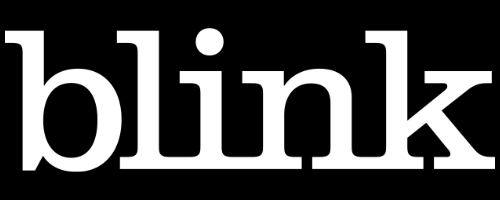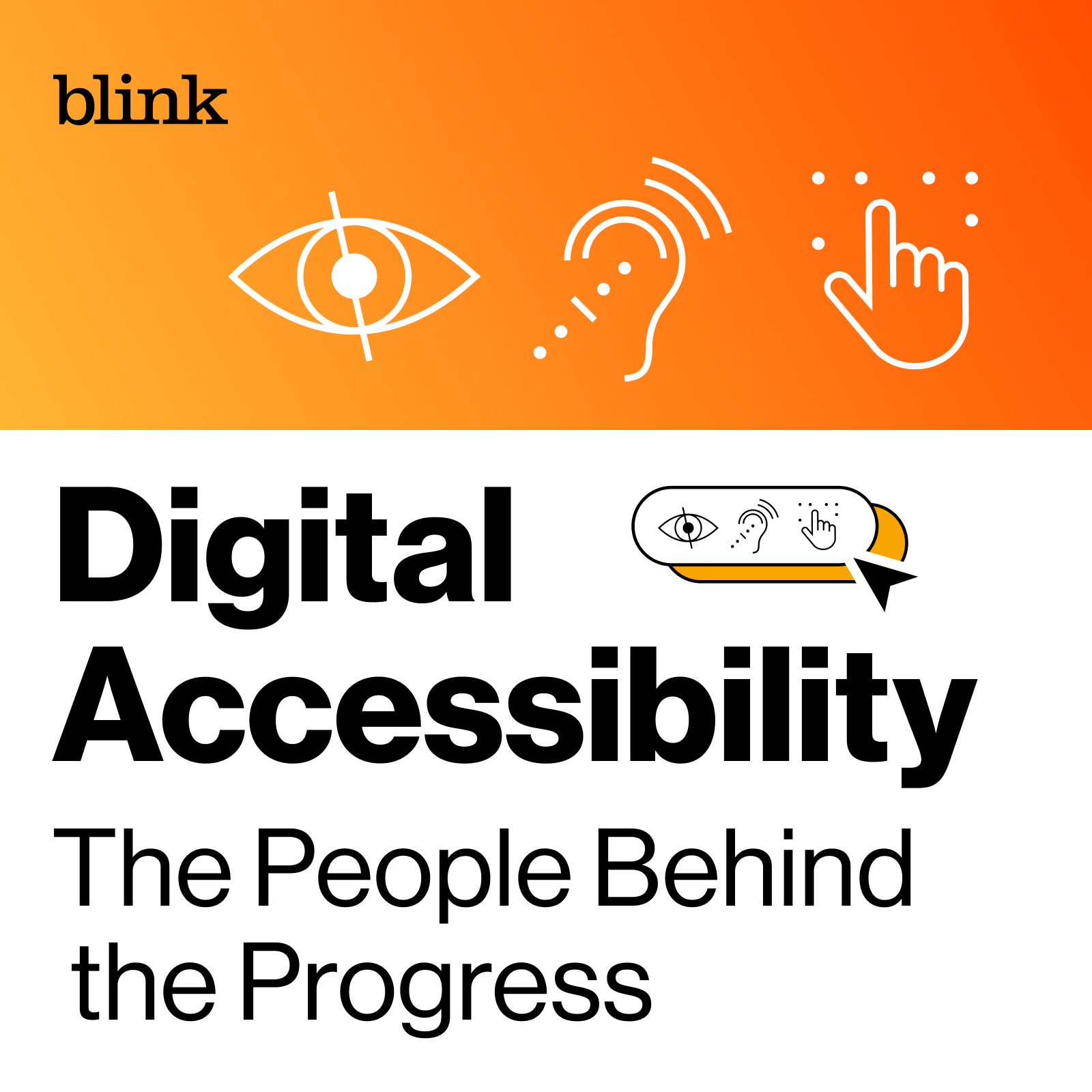Episode 9
Advocate, Educate, and Celebrate People with Disabilities
Blake Geyen, People First of Washington, Accessibility Advocate
Blake talks about his personal challenges from cerebral palsy and how that informs his consulting and advocacy work.
Mentioned in this episode:
Info about Accessibility at Blink
Transcript
(upbeat music)
Speaker:- Hello, this is Digital Accessibility,
Speaker:The People Behind the Progress.
Speaker:I'm Joe Welinski the creator and host of this series.
Speaker:And as an accessibility professional myself
Speaker:I find it very interesting as to how others found their way
Speaker:into this profession.
Speaker:So let's meet one of those people right now
Speaker:and hear about their journey.
Speaker:All right, well, here we go on another edition
Speaker:of our accessibility podcast,
Speaker:where we meet practitioners in the field.
Speaker:And as always the main objective of this is
Speaker:to just hear the stories of different people that have
Speaker:become accessibility practitioners,
Speaker:learn a little bit about their journey.
Speaker:Sometimes people may not be familiar with how
Speaker:to get involved in accessibility,
Speaker:but that's what we wanna do here is to invite everybody
Speaker:into what is a very interesting community of practitioners.
Speaker:Today I am talking with Blake Geyen.
Speaker:And Blake is someone who I met.
Speaker:Originally I was teaching at the University of Washington
Speaker:in Tacoma, and Blake had graduated from there with a BA
Speaker:in Urban Studies.
Speaker:And since then Blake has gone on to do consulting
Speaker:in the accessibility area,
Speaker:and has helped out on projects at Blink for accessibility.
Speaker:And so it was a natural to be able
Speaker:to have Blake as part of this.
Speaker:So let's get started and hello Blake,
Speaker:it's good to have you here.
Speaker:The first place we could start with is where you're
Speaker:located and the kind of work that you're doing now.
Speaker:- Hello, I'm Blake Geyen.
Speaker:I use a speech device to communicate.
Speaker:I live in University Place.
Speaker:I'm the volunteer training development coordinator
Speaker:at People First of Washington.
Speaker:People First is a statewide nonprofits self-advocacy
Speaker:organization for people with disabilities.
Speaker:We advocate, educate and celebrate people with disabilities.
Speaker:I coordinate documentation for all volunteers,
Speaker:prepare meeting minutes, clean up and organize media files
Speaker:and research videos on self-advocacy
Speaker:and self-determination skills.
Speaker:- Well, thanks for being here
Speaker:and with having mobility challenges,
Speaker:that's been one of the areas where you've really been able
Speaker:to provide a lot of great input on projects
Speaker:that we've worked on
Speaker:at Blink as an accessibility consultant.
Speaker:But maybe tell us a little bit more
Speaker:about your physical challenges and the kinds of devices
Speaker:that you use to overcome that.
Speaker:- I have cerebral palsy.
Speaker:I have a speech impediment
Speaker:and use an iPad application called ProLoquo4Text
Speaker:for communication.
Speaker:I use an iPhone application called Speak.
Speaker:I have a Mac Book Pro.
Speaker:I use assistive touch on my Apple devices
Speaker:to adjust the volume, lock and unlock the screen rotation
Speaker:and to lock the device.
Speaker:I use word prediction software on my computers
Speaker:to help speed up my typing.
Speaker:I have fine motor impairments.
Speaker:I also use a power wheelchair for mobility.
Speaker:- Well, it's the fact that you use
Speaker:so many devices is actually helped out in our projects
Speaker:where you've been able to demonstrate
Speaker:and identify issues with software running
Speaker:on different device types.
Speaker:So that's been very helpful.
Speaker:But yet you've also been to our conference,
Speaker:ConveyUX in the Seattle area when we were doing
Speaker:that in a physical environment.
Speaker:And it's great to be able to have you at those.
Speaker:And so I know that becoming interested
Speaker:in supporting accessibility is something
Speaker:that you want to continue on in your career path,
Speaker:but maybe let's go back in time and tell me a little bit
Speaker:about what got you interested in accessibility as a career,
Speaker:in addition to it being an important part of you being able
Speaker:to do any and all the other activities in your life.
Speaker:- I feel like our society has a long way to go before people
Speaker:with all disabilities are accepted in workplaces.
Speaker:About two years ago,
Speaker:I had about eight job interviews over a few months.
Speaker:I asked for the interview questions ahead of time
Speaker:and program my responses for the interviews,
Speaker:but was not selected.
Speaker:I believe the main reason that I was not chosen was
Speaker:because I use a speech device to communicate.
Speaker:I have been successful gaining employment
Speaker:with disability advocacy organizations.
Speaker:I would like to work for employers who will accept me
Speaker:for who I am.
Speaker:- Well, I appreciate you sharing that.
Speaker:And it's, you know, been very useful for me as well,
Speaker:working with you in just in the way
Speaker:that we conduct this interview today.
Speaker:Not really a big challenge.
Speaker:It was just exactly what you say,
Speaker:just a little pre-planning where we identify questions
Speaker:and issues that we'll be talking about.
Speaker:And then set that up in a way that you're able to, you know,
Speaker:prepare your own questions, your own responses.
Speaker:So it's certainly the, you know,
Speaker:these are things that are not major obstacles.
Speaker:And so hopefully we'll, you know,
Speaker:we'll continue to improve as a society in that area.
Speaker:I know there are some things that have come out in projects
Speaker:that you've assisted on,
Speaker:where you've talked about issues with accessibility.
Speaker:Certainly there's lots of different aspects of accessibility
Speaker:that we need to be concerned about.
Speaker:But what are some of the things that are most important
Speaker:to you for accessibility?
Speaker:- There are many things that are important
Speaker:for me for accessibility.
Speaker:I am a power wheelchair user
Speaker:and rely on accessible infrastructure to get around.
Speaker:I use paths, sidewalks,
Speaker:and curb cuts when rolling
Speaker:through cities in my power wheelchair.
Speaker:Sidewalks provide a safe way for me to get around.
Speaker:Curb cuts allow me to get onto the sidewalk.
Speaker:Street lighting is also important.
Speaker:It allows me to see the sidewalk well when it's dark
Speaker:and helps drivers see me.
Speaker:Accessible technology is also important.
Speaker:When I type on my laptop, I use sticky keys.
Speaker:This feature helps me save time typing.
Speaker:It activates command buttons, like shift,
Speaker:until I caress the key that I want.
Speaker:I use word prediction software to help speed up my typing.
Speaker:I also really appreciate being able
Speaker:to adjust the tracking speed of my mouse.
Speaker:If the mouse is too sensitive,
Speaker:I have a really difficult time using it.
Speaker:- Yes, so thanks for sharing those issues related
Speaker:to your experience as a user of software.
Speaker:And you've brought those into a lot of the projects
Speaker:that we've worked on together.
Speaker:In fact, we co-authored an article recently
Speaker:and I'll include a link to that in the show notes.
Speaker:All right, well, thank you so much, Blake,
Speaker:for contributing to this discussion.
Speaker:It was great to have you on here for this podcast.
Speaker:As I mentioned, I'll put in the show notes,
Speaker:the link to the article that we wrote together,
Speaker:and hopefully we'll work together again soon on a project.
Speaker:So thank you very much.


